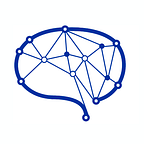Implications of AI in combating COVID-19
Artificial intelligence must be leveraged to power change in the wake of COVID-19.
The world is facing an existential global health crisis due to the outbreak of COVID-19. As technology becomes increasingly woven into the fabric of healthcare, new digital technologies serve as a beacon of hope for monitoring, detecting, preventing, and mitigating the damage caused by the novel coronavirus.
Photo by Isaac Quesada on Unsplash
Leveraging AI for drug discovery
One of the greatest areas where AI technologies can be applied is in the acceleration of drug discovery used to combat COVID-19. Researchers are currently studying the molecular setup of drugs used for diseases similar to coronavirus using AI to potentially repurpose such drugs to fight the COVID-19 pandemic.
BenevolentAI is one of many companies attempting to achieve this goal. They are using their AI-powered knowledge graph to surf through research and scientific literature in efforts to find an interconnection between the genetic properties of diseases and the development and action of drugs. BenevolentAI focuses on augmenting knowledge and reasoning, novel target identification, patient-specific treatments, and molecule design.
In the past few years, machine learning models trained on specific biomolecules have allowed us to discover effective viral therapies. For SARS-COV-2, scientists have identified multiple molecular targets of COVID-19, which, when inhibited, may increase patient survival rates. CoronaDB-AI is a dataset of compounds, peptides, and epitopes discovered in silico or in vitro that can be used to train machine learning models to aid in developing COVID-19 treatment.
Photo courtesy of Healx
Modeling and forecasting the spread of COVID-19 across countries
In addition to drug discovery, modeling COVID-19 plays a crucial role in the prediction of its impact. Though classical and statistical modeling fails to highlight the intricacies within the data, a multilayer perceptron artificial neural network allows us to build a global model of patients across all locations in each time unit.
In a study conducted by the University of Rijeka in Croatia, authors used a dataset containing information on infected, recovered, and deceased patients in 406 locations between January 22, 2020, to March 12, 2020. The dataset was transformed into a regression dataset to train a multilayer perceptron artificial neural network.
Overview of AI modeling, courtesy of Hindawi Journal
The model showed poor tracking of unexpected changes (sudden jumps in the number of infections), but good tracking of the overall model change. It produced effective predictions even after unexpected leaps in numbers, when given time to adjust. The achieved models showed that it is, indeed, possible to acquire a quality model of novel viral infections using AI-driven technology, with geographical and time data as inputs. The code and models are available at a public repository.
Current projects using AI to battle COVID-19
COVID-19 has had a debilitating effect on people’s health and security. From having to practice social distancing to provincial emergency closure orders to stay home, people are wondering how we will eventually resume normalcy in a safe manner. To serve as a catalyst for the development of solutions that address challenges due to COVID-19, multiple organizations are funding projects through grants.
Photo by Brian McGowan on Unsplash
Notably, CIFAR’s AI and COVID-19 Catalyst Grants initiative has funded fourteen new AI research projects that address the coronavirus outbreak. Some of the successful grant recipients include:
- COVIDEX — Advanced Information Retrieval for Clinical and Academic Literatures, Collaborators: Kyunghyun Cho (CIFAR fellow, Learning in Machines & Brains program, New York University), Jimmy Lin (Vector Institute, University of Waterloo). Uses neural networks to answer questions using the COVID-19 Open Research Dataset (CORD-19) provided by the Allen Institute for AI
- COVID-Net: An Open Source Deep Learning Platform for COVID-19 Detection and Risk Stratification, Collaborators: Alexander Wong (University of Waterloo), James Lee, Linda Wang, and Desmond Lin (University of Waterloo). A deep convolutional neural network design tailored for the detection of COVID-19 cases from chest X-ray (CXR) images
- MyTrace / MaTrace: A Privacy-Compliant Contact-Tracing Mobile App for COVID-19, Collaborators: Alán Aspuru-Guzik (Canada CIFAR AI Chair, CIFAR fellow, Bio-Inspired Solar Energy program, Vector Institute), Maryzeh Ghassemi (Canada CIFAR AI Chair, Vector Institute, University of Toronto)
- Machine Learning Against COVID-19: Accelerating Small Molecule Drug Discovery, Collaborators: Sarath Chandar (Canada CIFAR AI Chair, Mila, Polytechnique Montréal), Matthew Taylor (Amii, University of Alberta), Sai Krishna (99andBeyond), Karam Thomas (99andBeyond)
TL;DR
- Technologies like artificial intelligence are crucial for not only mitigating the damage caused by COVID-19, but also for preventing future pandemics and infectious diseases
- Although artificial intelligence has already allowed us to make significant breakthroughs in healthcare, we are only beginning to understand the extent of its potential impact
- Projects at the intersection of technology and healthcare (such as the fourteen mentioned under current projects) are underway across the globe, but require additional funding to make substantial progress and breakthroughs
This article was written by Komal Saini, a first-year computer science student at the University of Toronto.
References
Car, Z., Baressi Šegota, S., Anđelić, N., Lorencin, I., & Mrzljak, V. (2020, May 29). Modeling the Spread of COVID-19 Infection Using a Multilayer Perceptron. Retrieved September 19, 2020, from https://www.hindawi.com/journals/cmmm/2020/5714714/
Coronavirus disease (COVID-19). (n.d.). Retrieved September 19, 2020, from https://www.who.int/emergencies/diseases/novel-coronavirus-2019
Davidson, K. (2020, May 12). CIFAR to support 14 new AI research projects in the fight against COVID-19. Retrieved September 19, 2020, from https://www.cifar.ca/cifarnews/2020/05/12/fourteen-ai-research-projects-join-the-fight-against-covid-19
Keshavarzi Arshadi, A., Webb, J., Salem, M., Cruz, E., Calad-Thomson, S., Ghadirian, N., . . .Yuan, J. (2020, July 17). Artificial Intelligence for COVID-19 Drug Discovery and Vaccine Development. Retrieved September 19, 2020, from https://www.frontiersin.org/articles/10.3389/frai.2020.00065/full
